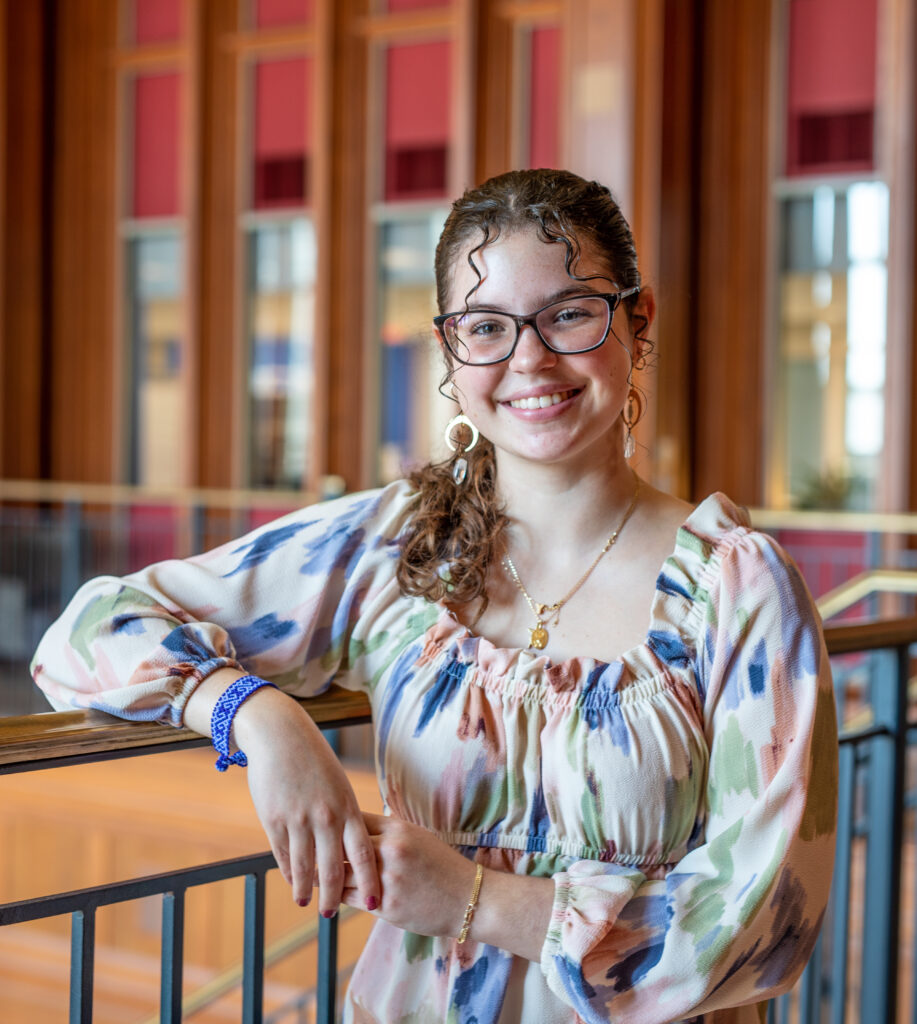As a first-generation student who immigrated to the United States at the age of 7, Yoana Zamora Miranda is doing something no one else in her family has done – pursuing a formal post-secondary education.
“I am carrying on a dream for my family who never had the chances or opportunities I am faced with today,” said Zamora Miranda. “My parents received some training and college education in Cuba, Spain, and the United States, but it was never in the form of a formal university education. So, they can’t really advise as I move through my experience at WashU.”
I am carrying on a dream for my family who never had the chances or opportunities I am faced with today.
What some may see as an obstacle, Zamora Miranda sees as an opportunity. As a second-year student majoring in Global Studies with a concentration in development, Zamora Miranda uses her personal, lived experience as impetus to thrive at WashU.
“I consider myself Spanish-Cuban,” said Zamora Miranda, who grew up in the Canary Islands in Spain, before her family settled in Kansas City, Mo. “My professional aspirations include immigration law, but I am leaning more toward advocacy related work. So, I plan to continue my education in the Brown School’s 3-2 social work program, and then move on to get my JD.”
Beyond her academic pursuits, Zamora Miranda is involved in several organizations, clubs and activities that round out her experience at WashU. As a scholar in the TRiO Student Support Services Program, a federally funded U.S. Department of Education program that supports first generation, low income, and/or students with disabilities transition into and graduate from college, Zamora Miranda has found that sense of grounded support she needed as a first-gen student.
“TRiO is a fantastic resource,” she said. “It helps normalize the kind of person I am at this institution, especially considering the high rate of legacy admits at WashU. I am very grateful for being part of TRiO because it has grouped me with a very supportive community to help navigate this institution and determine who I want to be within and beyond WashU.”
TRiO is a fantastic resource. It helps normalize the kind of person I am at this institution, especially considering the high rate of legacy admits at WashU. I am very grateful for being part of TRiO because it has grouped me with a very supportive community to help navigate this institution and determine who I want to be within and beyond WashU.
Zamora Miranda is also a Rodriguez Scholar, a St. Louis Fellow through the Gephardt Institute for Civic and Community Engagement, a member of the Association of Latin American Students (ALAS), and even finds time to be a member of String Theory, WashU’s knitting and crochet club.
“These experiences outside of the classroom are what bring my educational experience full circle,” said Zamora Miranda. “One thing I’ve learned about my own Latiné community while here at WashU is the diversity within it. Because it is so diverse, I don’t feel pressure to conform to a stereotype, and I can embrace all aspects of myself because no one aspect is perceived to be more Latiné than the other within the WashU Latiné community; it’s okay to be different from each other.”
Zamora Miranda said that it was last year’s Latiné Summit that expanded her knowledge about her community.
“I honestly love it here – I’m thankful to be at WashU,” she said. “I don’t know if any other school would support me like this. But WashU does know of students like me – they do see us, and they do give us the space to explore our identity in ways that are meaningful to us.”
